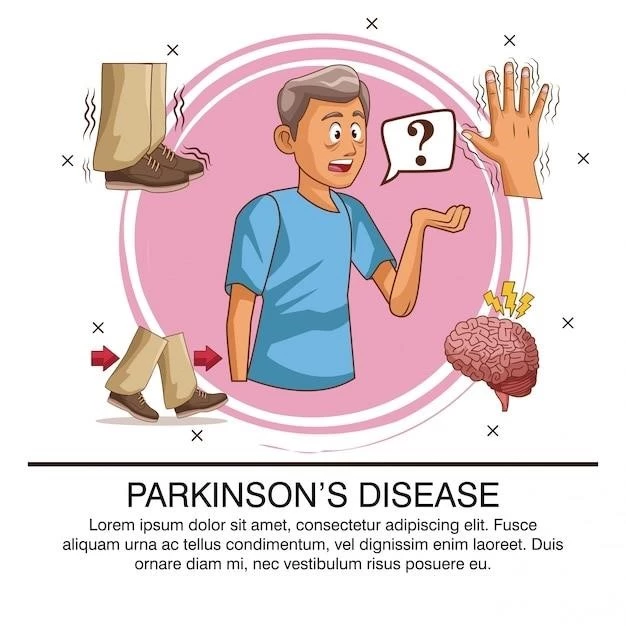Introduction to Podder-Tolmie Syndrome
Podder-Tolmie syndrome is a rare condition with limited information available. It is characterized by severe impairments in psychomotor development and hematologic abnormalities;
Overview of the Rare Disease
Podder-Tolmie syndrome is a rare condition characterized by severely impaired psychomotor development and hematologic abnormalities. Limited information is available currently, including details on symptoms and the cause of the disease. Further research and awareness are essential in understanding and managing this rare syndrome.
Symptoms and Characteristics
Podder-Tolmie syndrome presents with severely impaired psychomotor development and hematologic abnormalities as key characteristics.
Severe Impairments in Psychomotor Development
Podder-Tolmie syndrome manifests with substantial challenges in psychomotor development, affecting various aspects of an individual’s motor skills and cognitive functions. These impairments play a significant role in the overall presentation of the syndrome.
Hematologic Abnormalities
Podder-Tolmie syndrome is associated with hematologic abnormalities, presenting challenges in blood-related functions. The presence of such abnormalities adds complexity to the overall disease profile.

Cause of Podder-Tolmie Syndrome
GARD states that currently, there is no information available regarding the specific cause of Podder-Tolmie syndrome.
Limited Information on the Underlying Cause
Currently, the cause of Podder-Tolmie syndrome remains unknown, and there is limited information available regarding the specific underlying factors contributing to the development of this rare condition. Further research is needed to understand the cause in depth.
Diagnosis and Genetic Information
No specific information available on the diagnosis and genetic factors of Podder-Tolmie syndrome at this time.
Association with Meningoencephalocele, Arthrogryposis, and Hypoplastic Thumbs
The Podder-Tolmie syndrome is closely linked to meningoencephalocele, arthrogryposis, and hypoplastic thumbs, creating a distinct diagnostic profile.
Management and Treatment Approaches
No specific details are available for the management and treatment of Podder-Tolmie syndrome as of the latest information accessed.
Challenges in Diagnosis and Treatment
Diagnosing and treating Podder-Tolmie syndrome pose significant challenges due to limited information on the disease’s cause, symptoms, and genetic factors. The absence of specific diagnostic and treatment protocols hinders effective management of the condition. As understanding of the syndrome evolves, addressing these challenges becomes crucial in enhancing patient care and outcomes.
Research and Current Developments
The latest information accessed provides limited details on ongoing research or developments related to Podder-Tolmie syndrome.
Latest Updates from NCATS Genetic and Rare Diseases Information Center
The latest information from the NCATS Genetic and Rare Diseases Information Center regarding Podder-Tolmie syndrome may have limited updates available, with the last post dating back to January 1٫ 2011. For more recent developments on this rare syndrome٫ ongoing research and updates from reputable sources are crucial in understanding and managing the condition.
Prognosis and Outlook
Currently, there is limited information on the prognosis and outlook for individuals with Podder-Tolmie syndrome.
Understanding the Long-Term Prognosis of Podder-Tolmie Syndrome
The long-term prognosis of Podder-Tolmie syndrome remains unclear, with limited information available on the disease’s progression and outcomes. Further research is necessary to determine the overall outlook for individuals affected by this rare condition.
Support Resources for Patients and Caregivers
For information and support resources related to Podder-Tolmie syndrome, individuals can visit online platforms like the Genetic and Rare Diseases Information Center.
Organizations Providing Assistance and Information
For individuals seeking support and information on Podder-Tolmie syndrome, organizations like the Genetic and Rare Diseases Information Center can offer valuable resources and assistance. These organizations play a crucial role in providing guidance and support to patients and caregivers affected by rare conditions.
Associated Conditions and Related Syndromes
Podder-Tolmie syndrome is associated with meningoencephalocele, arthrogryposis, and hypoplastic thumbs, linking it to various rare conditions.
Connection with Distal Arthrogryposis and Meningoencephalocele
Podder-Tolmie Syndrome, also known as meningoencephalocele, arthrogryposis, and hypoplastic thumbs, shares connections with distal arthrogryposis and meningoencephalocele. These associations highlight links between different rare conditions.
Genetic Factors and Inheritance Patterns
Genetic and Rare Diseases Information Center states limited details are available on the genetic factors and inheritance patterns of Podder-Tolmie syndrome.
Understanding the Genetic Basis of Podder-Tolmie Syndrome
Regarding the genetic basis of Podder-Tolmie syndrome, limited information is available on the genetic factors and inheritance patterns associated with this rare condition. Research efforts are ongoing to deepen our understanding of the genetic underpinnings of Podder-Tolmie syndrome, ensuring better insights into the inheritance patterns and underlying genetic mechanisms that contribute to the development of this syndrome.
Podder-Tolmie syndrome can have a significant impact on an individual’s overall health and well-being due to the unique set of complications and comorbidities associated with the condition.
Complications and Comorbidities
Podder-Tolmie syndrome can lead to various complications affecting overall health, including comorbidities that impact individuals with this rare condition.
Rare Disease Education and Awareness
Spreading awareness about Podder-Tolmie syndrome and educating the public on rare conditions is crucial for better understanding and support.
Importance of Spreading Awareness about Rare Conditions
Increasing awareness about Podder-Tolmie syndrome is crucial to ensure individuals understand the implications of rare diseases and how to support affected individuals and their families effectively. Educating the public and healthcare professionals can lead to better diagnosis, treatment, and overall care for those living with rare conditions like Podder-Tolmie syndrome.

Conclusion
In conclusion, Podder-Tolmie syndrome presents significant challenges due to limited information available on its cause, symptoms, and genetic factors. Spreading awareness and further research are crucial for better understanding and support for individuals affected by this rare condition.
Summary of Key Points on Podder-Tolmie Syndrome
Podder-Tolmie syndrome, characterized by impaired psychomotor development and hematologic abnormalities, lacks detailed information on symptoms, cause, and genetic factors. Spreading awareness and promoting further research are vital to support individuals affected by this rare condition.
